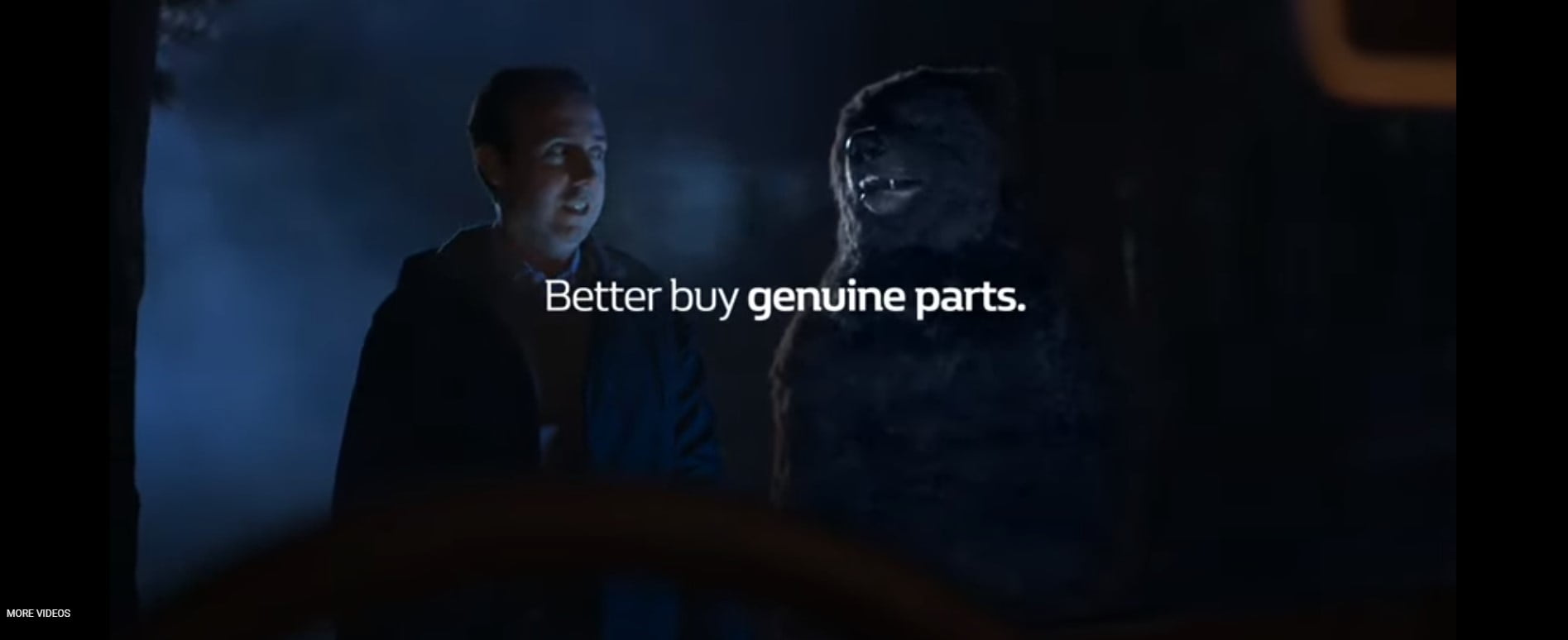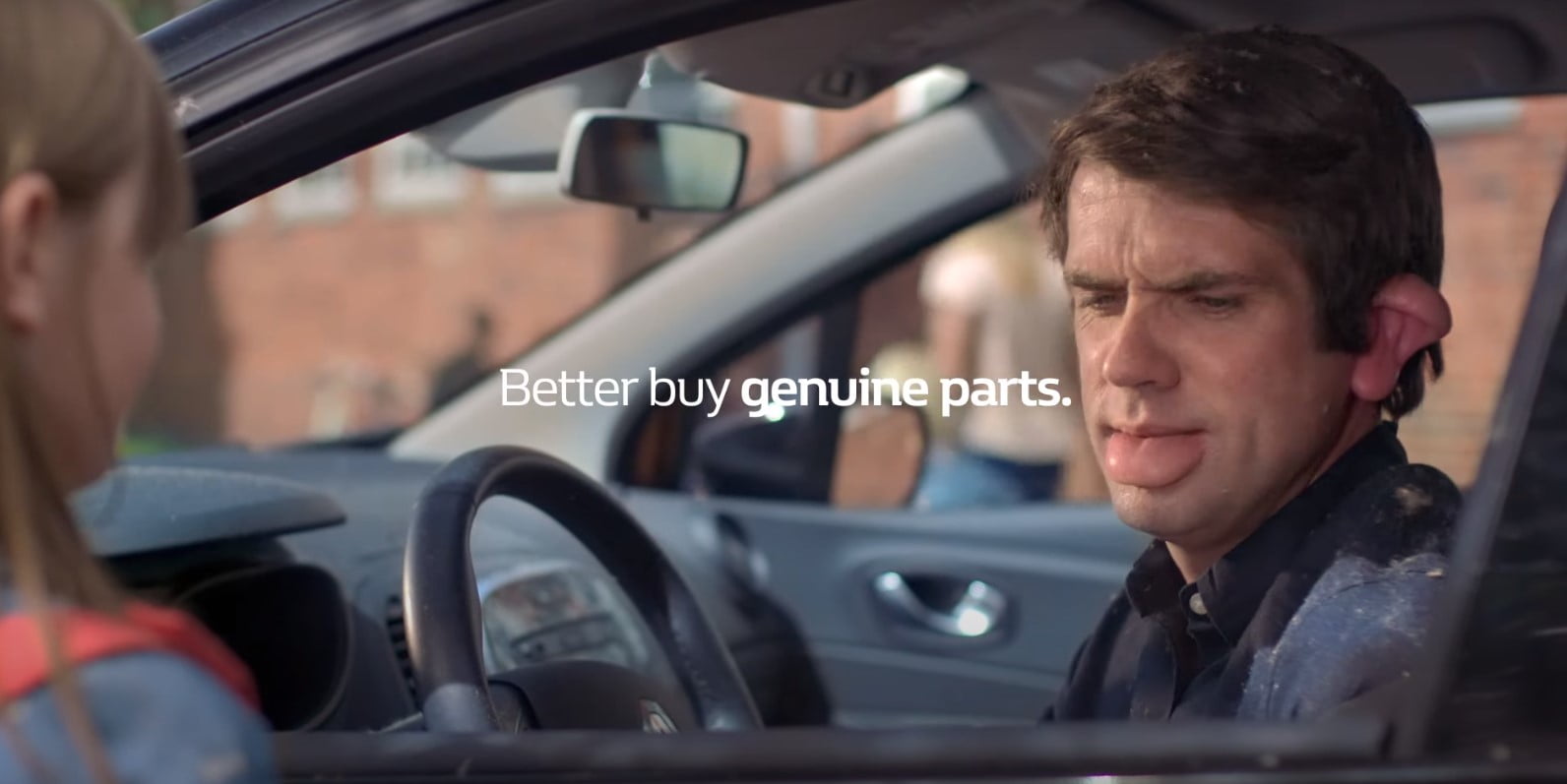RENAULT GENUINE PARTS
GENUINE RENAULT SPARE PARTS
High-quality genuine Renault spare parts are original equipment parts specifically designed, made, and tested to help you keep your Renault vehicle running at peak performance.
Whether you’re restoring an old favourite or personalising your newest vehicle, count on the right auto parts to provide the dependability you expect from Renault. The Renault service experts know precisely which parts your Renault car, MPV or SUV needs. Rely on them to maintain your Renault with the same parts used to build it.
EVERY GENUINE RENAULT PART IS CAREFULLY CRAFTED BY EXPERT TECHNICIANS FOR YOUR CONVENIENCE
Here’s how you can avail them.
- Renault genuine parts, lubricants and chemicals are specifically designed for Renault vehicles, and are engineered to adhere to the quality and standards set by the manufacturer.
Always choose genuine parts for your Renault
- The quality of materials guarantee the durability and longevity of original Renault parts. Each part is put through rigorous tests to meet Renault’s high standard in geometry, elasticity limits, breaking strains and resistance to knocks and temperature effects.
- Renault uses all its know how to improve the safety of its vehicles. Thousands of tests are undertaken to give its parts better performance, durability and flexibility. We have for example, increased the surface area of the windscreen and enhanced the headlight range to improve visibility.
Quality and safety
- Each body part plays a major role in vehicle reliability. The Renault industrial process is at the very forefront of technology and is subject to continuous technological checks during manufacture.
- Renault’s genuine parts fit perfectly to your Renault and ensures that the original design of the vehicle can be maintained without disturbing its aesthetics.
Innovation and design
BETTER BUY GENUINE PARTS
Disclaimer: cars shown in above videos are not available in the Nepali market.
FAQS
Not only does your Renault help make life easier, but it also provides confidence on the road. And when it comes to caring for your vehicle, we believe maintenance should do just that. Below you’ll find answers to some frequently asked questions about maintaining your Renault.
Q: What makes Renault technicians different?
A: From oil changes to engine replacements, these automotive experts, nationwide, are trained to care for your vehicle’s special needs. They use the latest and most advanced diagnostic equipment available. Renault parts are tested for performance and reliability. So no matter what kind of vehicle you own, trust it to the Certified Service technicians at your Renault dealer.
Q: How can I be sure I’m having my vehicle maintenance performed at the right time?
A: Renault Service is your one-stop shop for everything maintenance related. To learn about your vehicle’s specific maintenance schedule, when to get your oil changed, brake service, and much more, download your Renault Owner’s Manual.
Q: How can I be sure to get the correct type of engine oil for my vehicle?
A: Consult your vehicle Owner’s Manual or visit the Service experts at your Renault dealer to be sure you get the proper oil for your vehicle.
Q: I’ve heard that I should change my oil every 10,000 km. Is that true?
A: Depending on the age of the vehicle, driving habits, and road conditions, vehicles with today’s advanced engines can go much longer than 10,000 kms but its always better to follow the recommended change period schedule as referred in your owner’s manual.
Q: How do I know when my wiper blades need changing?
A: A blade’s natural rubber deteriorates after about 6 months, which is why it’s recommended that you replace your blades on a semi-annual basis. Streaking, squeaking, chattering, skipping, cracks, tears, splits, bent or broken frame, worn rubber, and rounded wiping edge are some common signs that your blades need to be changed.
Q: Even though one of my wiper blades is more worn than the other, should I replace both of my wiper blades?
A: Yes, it is recommended that you replace both. This will ensure your windshield is clear and provide a safer view when driving.
Q: Is there anything I can do to make my blades last longer?
A: The biggest enemy of wiper blades is exposure to sunlight. There is little that can be done to reduce exposure, but limiting the amount of time your blades are exposed to direct sunlight will help prolong the life of the wiper blade. Clean your windshield and the rubber element of your wiper regularly.
Q: What can be used to clean the wiper blades?
A: It is recommended to use warm, soapy water or another nonabrasive liquid.
Q: Why is my wiper blade streaking?
A: Streaking is caused by worn blades. A blade’s natural rubber deteriorates after about 6 months.
Q: How easy it is to replace wipers?
A: Wiper replacement is easy, and instructions are typically included with your wipers. If purchased at your Renault dealer, the Service experts will install them for you.
Q: Are all wipers designed the same way?
A: No, there are lots of different designs: beam, conventional, and winter are the most common.
Q: How do I know when I need new brakes?
A: Brake pads are equipped with wear indicators that produce a squealing noise when the brakes are almost worn out. The noise may be present with or without the brake pedal applied, but when noise is heard from the wear indicator, the brake pads should be replaced as soon as possible. Wear indicators are set to create noise when there is around 2 mm of brake pad friction material thickness remaining. In the case of assessing pad wear through inspection, pads should be replaced at or before 2 mm thickness is reached.
Brake rotors are marked with a “minimum thickness” on the casting (usually 2 mm to 3 mm less than the new rotor thickness). Rotors should be replaced before they reach this minimum thickness and should not be turned below this.
Q: Must I always turn or replace my rotors when changing my pads?
A: No. If there are no conditions such as pedal pulsation or steering-wheel vibration during braking, and the brake rotor is at least 1 mm thicker than the discard thickness, then it does not need to be turned or replaced.
Q: I have a 2015 Renault; when should I get my tyres rotated?
A: Beginning with the 2015 model year, owners of Renault vehicles are advised to see their dealer for a tyre rotation on every service schedule.
Q: Why is tyre rotation so important?
A: Each tyre on a vehicle performs a different task, causing them to wear at different rates. Regular tyre rotation allows tyres to wear evenly, maximising tyre life and allowing tyres to be replaced in sets of four, which is preferable.
Q: I’ve heard that the first tyre rotation on my new Renault vehicle is the most important. Why is that?
A: Irregular tread wear occurs fastest when tyres are new and at full tread depth, thus the first tyre rotation has been found to be of the greatest importance.
Q: Is it OK to rotate my tyres earlier than 10,000 km. on a 2015 model-year vehicle and newer?
A: Yes, it is okay, particularly if you notice signs of irregular tyre wear.
Q: Why is tyre pressure important?
A: Improperly inflated tyres are a leading cause of tyre failure. Proper tyre pressure helps a tyre have optimum tread contact with the road, which improves traction and braking and reduces tyre wear. Underinflated tyres generate heat, which is the tyre’s worst enemy, so maintaining the right amount of air keeps temperatures where they should be.
Q: How often should I check my tyre pressure?
A: Checking your tyre pressure once a month is a good guideline. For specific information on your vehicle, refer to your Renault Owner’s Manual. Be sure the tyres are cold (driven less than one kilometre), and don’t forget to check your spare tyre. Use a good-quality tyre gauge to check your tyre pressure — don’t just use your “eyeballs” checking tyres because they can look fine even when they are underinflated. Remember that tyres can lose air pressure in cold weather.
Q: How will I know when I need new tyres?
A: You’ll need new tyres when the tread wear indicators — called wear bars — appear. These wear bars look like narrow strips of smooth rubber across the tread and appear when it’s time to replace your tyres. If you can see three or more tread wear indicators around the tyre, you should replace your tyres. Other ways to know when you need to replace your tyres include cord or fabric showing through the rubber, cracks or cuts in the tread or sidewall deep enough to show cord or fabric, bulges or splits in the tyre, and punctures or damage that cannot be repaired correctly. If you have questions about whether your tyres need replacing, see the experts at your nearest Renault dealer.
Q: There are a lot of places that sell tyres. Where should I go to get the right tyres for my Renault at the right price?
A: Renault dealer can recommend tyres that are right for your Renault, your driving habits, and your budget.
Q: Why won’t my car start?
A: There are numerous reasons why a vehicle won’t start. If it’s related to the battery, the starter will generally not crank the engine. This is the telltale “click, click, click” when you turn the key. This could be an alternator not charging the battery properly, a loose battery or starter cable, or a battery that needs to be replaced.
Q: Do I need to charge my auto battery after I jump-start my vehicle?
A: In most instances, normal driving will recharge the battery unless there is an issue with the vehicle. If your vehicle does not start after driving it, it’s recommended that you take your vehicle to your nearest Certified Service experts to have a diagnosis performed.
Q: What are the main causes of auto battery failure?
A: Batteries wear out over time, but there are also issues that impact battery failure, for example, unusual “overload” such as adding accessories but not properly grounding them, infrequent startup, and discharged batteries freezing at 32 degrees Fahrenheit.
Q: What should I consider when buying an auto battery?
A: While buying battery you should know dimensions of your original battery & the Ampere hour (Ah) required to power your vehicle.
Q: What kind of preventive maintenance can I perform for my auto battery?
A: The best thing that you can do is have your Renault Service technician perform a conductance test on your battery when you get your oil changed. This helps to monitor the status of the battery and helps prevent you from being in a situation where your vehicle won’t start.









